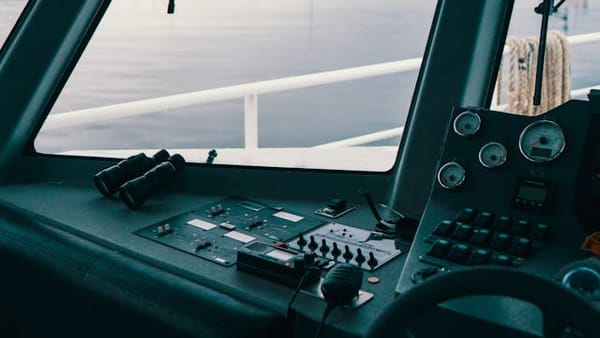Put Sustainability on the Line with Recyclable Fishing Line
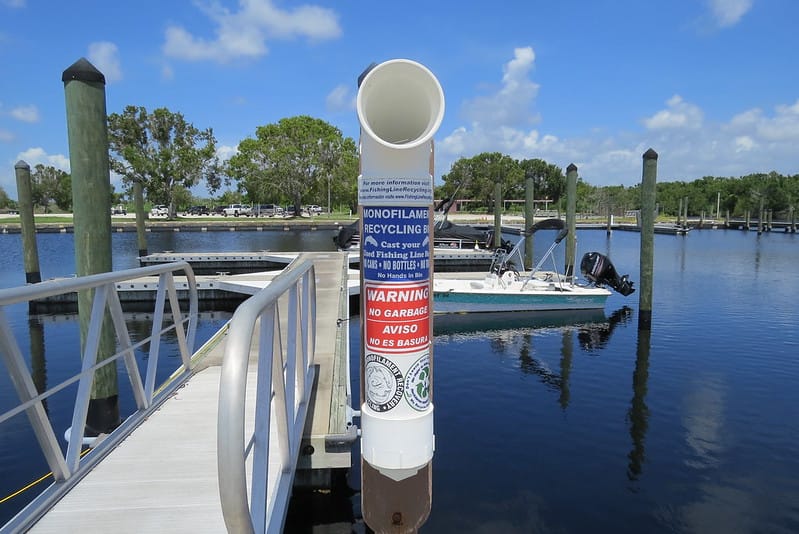
Fishing is a time-honored pastime and profession that connects people to nature, but it can also have unintended consequences for the environment. One of the most pressing issues is the pollution caused by discarded fishing lines, whether you’re fly-fishing, trolling, offshore saltwater fishing or casting from a boat, a private boat lift rental, a pier or the shoreline.
These lines, often made from non-biodegradable materials like nylon or fluorocarbon, can persist in the environment for hundreds of years, posing a serious threat to wildlife and marine ecosystems. To combat this, developing and using recyclable fishing lines offers a promising solution for sustainability-minded anglers trying to keep the sea trash-free.
Why Fishing Line is a Problem
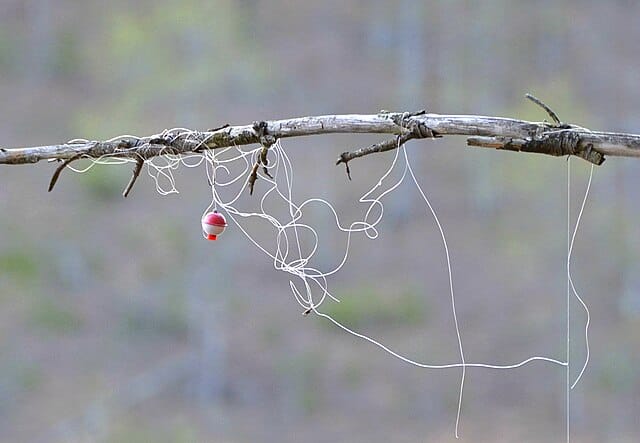
Traditional fishing lines are incredibly durable. They’re designed to withstand the wear and tear of casting multiple times and reeling in fish. However, this durability becomes a major environmental issue when the line is lost or discarded in the water or along shorelines.
Fishing lines can harm marine animals by entangling them and causing injuries or death to birds, fish, sea turtles and other animals that become trapped in it. Large jumbles of fishing line can also get tangled in your boat propeller.
Additionally, the breakdown of these materials over time leads to microplastic pollution, which is harmful to marine life and can even enter the human food chain through seafood consumption.
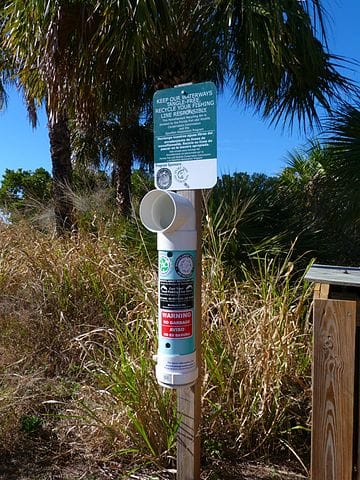
The Role of Recyclable Fishing Line
Recyclable fishing line aims to address these environmental challenges by providing a solution that minimizes the negative impact of traditional lines. Made from materials that can be processed and reused, recyclable fishing lines can be collected and turned into new products rather than ending up in landfills or the ocean.
How It Works
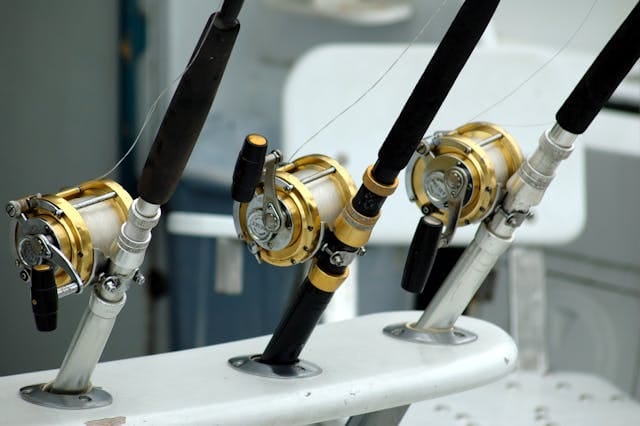
Many recyclable fishing lines (like the single-strand varieties of monofilament and fluorocarbon) are composed of high-density nylon or similar materials that can be melted down and reformed into new items like park benches, tackle boxes and even new fishing gear. Wire and braided varieties can’t be recycled. If you do happen to have a non-recyclable type, dispose of it properly and cut it up into smaller pieces (less than a foot) before throwing it away in a covered trash receptacle.
The recycling process usually begins when anglers collect their used or broken fishing line and drop it off at designated recycling bins, often provided by fishing organizations, bait shops or environmental groups. These bins are then regularly emptied and sent to recycling facilities where the material is processed.
Organizations like the Berkley Conservation Institute (BCI) have initiated fishing line recycling programs. Part of Pure Fishing, Berkley provides collection bins in popular fishing spots and works with partners to turn the line into useful products like fish habitats. If you can’t find a bin, you can mail the old fishing line directly to the company at: Berkley Recycling, 1900 18th Street, Spirit Lake, Iowa 51360.
Through its Reel In and Recycle program, BoatUS has helped fund more than 2,000 fishing line recycling bins across the country. It partners with the NOAA Marine Debris program and the National Fish and Wildlife Foundation.
Benefits of Recyclable Fishing Line
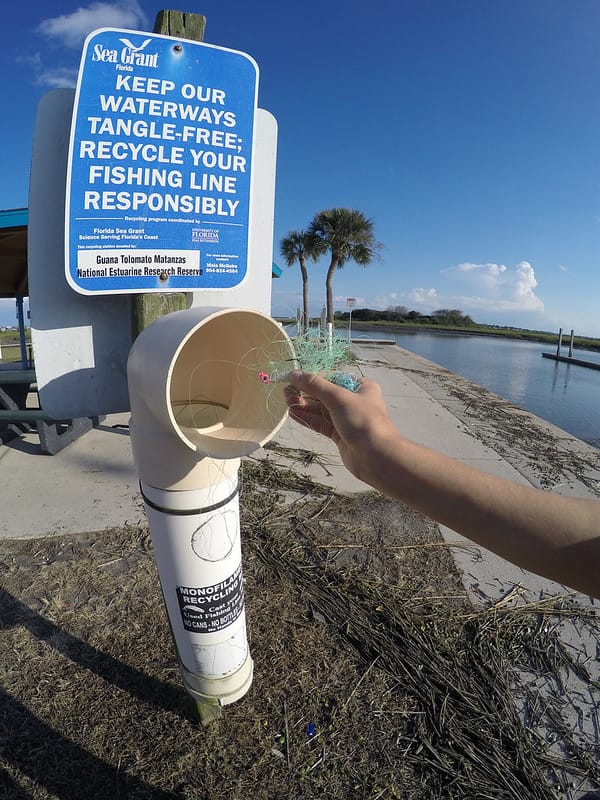
- Reduced Wildlife Entanglement: Properly recycling fishing line greatly diminishes the risk of it entangling and harming wildlife. Recycling efforts also help keep fishing spots and marine habitats cleaner, reducing the amount of discarded line left in the environment.
- Decreased Plastic Pollution: Recyclable fishing line helps mitigate the issue of microplastics. Since the line is collected and repurposed, it doesn't break down into harmful microscopic particles that enter waterways and affect marine life.
- Sustainability for Future Generations: By adopting recyclable fishing line and recycling habits, anglers contribute to the long-term sustainability of fishing as a hobby and livelihood. Responsible fishing practices help preserve natural resources and ensure that future generations can continue to enjoy the sport.
- Cost Efficiency: Recycling fishing lines can lead to cost savings for manufacturers. By reusing materials, companies can reduce the need for virgin plastics, which can be both costly and resource-intensive to produce.
How Anglers Can Contribute
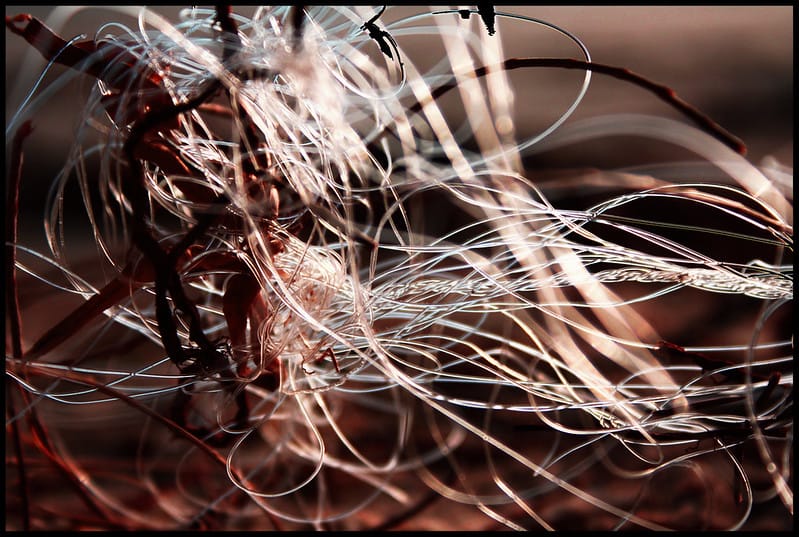
Adopting recyclable fishing line is just the beginning. Anglers can play an active role in reducing fishing's environmental footprint by following these simple steps every time they leave a private boat lift rental or local marina.
- Use Biodegradable or Recyclable Fishing Line: Choose fishing lines made from eco-friendly materials. Several brands now offer durable, recyclable, or biodegradable options.
- Participate in Line Recycling Programs: Many fishing communities have line recycling programs in place. Look for designated collection bins or check with your local tackle shop to find out where you can drop off used fishing lines.
- Dispose of the Line Responsibly: Never discard the fishing line in the water or on the ground. If there isn’t a recycling bin available, collect your used line in a safe container and bring it home or back to the boat dock rental to recycle properly.
- Encourage Others: Spread the word about the importance of recycling fishing line and the environmental impact of improper disposal. Encourage other anglers to adopt sustainable practices whether they leave out of marinas and private boat slips or trailer their boat.
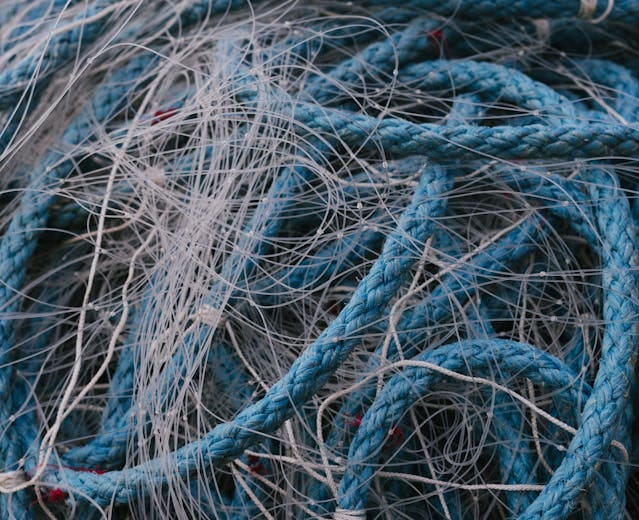
Where to Recycle Fishing Line
There are several places where you can drop off used fishing lines.
- Boat ramps
- Bait and tackle shops like Bass Pros Shops and Cabelas
- Department of Wildlife Resources (DWR) offices
- Piers
- Parks
- Build your own recycling bin
The Future of Sustainable Fishing Gear
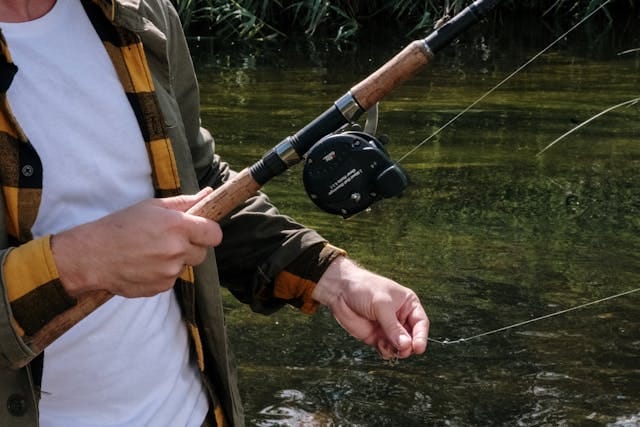
As awareness grows about the environmental challenges facing our oceans and freshwater bodies, innovation in fishing gear continues to evolve. In addition to recyclable fishing lines, biodegradable hooks, eco-friendly lures, and sustainable bait are also gaining popularity, helping reduce the sport's environmental impact.
Consider adding recyclable fishing lines to your fishing rod and gear collection to help protect the environment and local waterways.



